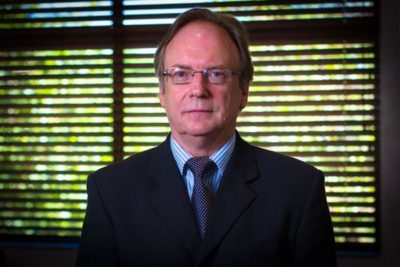Putting from the Rough: Part 4 by John Cockayne


We conclude Putting from the Rough, by examining some of the key expectations and requirements from the perspective of the client and the consultant within a contracted relationship.
The Client:
Budgeting:
There will be the need for clarity and for the client to be able to budget (excluding ad hoc projects) effectively for the consultant’s services, because an open-ended relationship, with an undefined timeframe, is not workable for most financial and budgetary processes.
Access:
Ideally, complete access to the consultant must be the goal.
There is no more certain way to compromise the effectiveness of the relationship, than for it to become a clock watching exercise for both parties.
That said, this should provide balanced access enabling the client to call on the consultant at any time – not on the 24h00 clock, but in terms of the time inputs’ framework and normal business hours.
Reciprocally, the consultant needs to be able to respond to and or pursue a business opportunity, or task, until it is completed and not need to abort half way through, because his or her allocated or prepaid time has been used.
Expect change:
An effective relationship will and should change the nature of the business environment.
This change will affect the club and any brand or product partners and is both good and to be expected.
Albeit in the context of different relationship, in the role as a club’s head professional and not a consultant, I would refer to the following as an example of the type of change that can be affected.
To increase both rounds and product sales, I put together a pre-paid rounds’ ‘season ticket’ incentive and promotion with an equipment company, which had budgeted a specific fee for me to process each purchase.
In conjunction with the agreed rounds’ price, the package included an allocation of the company’s product (a pack of golf balls, cap and a glove) with the purchase of each playing season ticket.
From initial discussions with the club captain, I was then involved, as being more qualified, to refine and finalise the deal and I checked the background facts, figures and expectations with the product company.
The equipment company had based the quantity of support products required on the highest annual sales of playing tickets over the previous 3 years’ sales.
I observed that by including the incentive, they would change the very nature of the season ticket’s perceived value.
Because of this, I proposed the company budget for the sales to increase by at least 50%, with this increase to be based on the highest number of sales yet achieved.
The alternative would be to cap the incentive to the first X number (the highest previous figure plus 50% extra) of playing tickets purchased.
The season ticket sales actually doubled.
However, the equipment company being aware of the potential impending increase in product and process fee requirement, made additional provision for product support and was able to carry the promotion incentive through on every sale.
Making provision for increased sales is a nice problem to have and it is the type of change that the client / consultant relationship is geared to create.
However, any potential downstream logistical implications also need to be thought through and understood.
The Consultant
Function:
The client must make an effective introduction of the consultant to the incumbent staff.
This will include making it clear which function/s the consultant is there to perform.
The client must also detail how the consultant can help the permanent staff as there will some ‘fear’ around job security.
I often use a parachute or lifebelt as the analogy in this scenario, to make sure that staff members understand that their jobs are not under threat.
Title:
For an internal role, the job’s role can be embodied in the title i.e. ‘communications officer’, or ‘new business development officer’.
However, should the consultant be required to engage with the external public, at a management level, then they must also be a given a title which has ‘gravitas’.
It will be commensurate with the role of representing the club, venue or facility in negotiations. It will also relate to some, or all, of the functions with which the consultant will be involved.
The use of prefixes such as ‘consulting’, ‘interim’ and ‘acting’ should be avoided, as all of these create a sense of impermanence.
This can be counterproductive and lead to situations where in a key development phase, prospective partners might want to choose to ‘wait’ until they can finalise the business with a ‘permanent’ or ‘full time’ member of staff.
Legacy:
A key part to the success of any consulting initiative will be the ability of the permanent management staff to ‘carry on’ with the changes and inputs after the consultant has gone off site.
A consultant can and should play a key role in helping to ensure that the ‘right’ mix of skills, understanding and personnel are in place to ensure that any value is not lost, or diluted as soon as the contract is completed.
One of the most effective ways to combat this transition, is to have a process of skills transfer during the consultant’s time on site and couple this to a post contract retainer.
The retainer would be at a lower level of remuneration to that in the original contract and, in many respects, could be likened to a weaning off period.
In my general experience, the business of golf has been slow to innovate.
This has been due to some extent to the previous lack of any need for change and experimentation.
I must admit that I am not overly fond of the modern approach to most things, which seems to be slavish attitude to pursue to change at all costs.
This seems to manifest itself, especially in terms of perfectly good functioning technology, with the attitude that – ‘OK, so it’s not broken, but let’s fix it anyway’!
That said, how things have changed, adding very powerful resonances to the phrase that ‘necessity is the Mother of invention’ – a wonderfully apt saying in this context which has been ascribed to various sources from Plato to Franck.
It also seems that the fear of failure is making itself more felt, especially and this is a ‘dangerous’ attitude to allow to take root.
If anything, both boards and management need to inculcate a change of culture, by analysing their own processes encourage staff who are not comfortable questioning processes, to initiate, innovate or be part of trying something new.
This will give the staff the scope, freedom and support to develop strategies and initiate activities to help grow their own facility’s piece of the market place.
Equally, management boards and directors, all put themselves in serious danger of failure, if they don’t also encourage their own facility’s management to be proactive – with the related accountability.
The use of a consultant can also help to reinforce one of a board’s and or committee’s key responsibilities in another key area – that of oversight.
Micromanagement is a ‘curse’, undermines management’s ability to do its work and it distracts the board or committee from its actual responsibilities.
The involvement of a consultant can often encourage a more hands-off approach for the board, as it will hardly be justified in hiring an expert and then micromanaging his or her inputs.
The downstream benefits can then often lead to the break up the toxic chain of micromanagement with the rest of the staff, thereby leading to a more pleasant, efficient and productive working environment.
Seeking the assistance of a consultancy service should not be seen as a negative sign, or one of inherent weakness, in either the board or its management.
In real terms, it is a positive reflection on management in the fact that a problem has been recognised and ways are being sought to address
An article in the Science Monitor opined in the 1970s:
“You don’t have to know everything, because you can always ask someone who does know.”
A suitably qualified consultant can change the state of play, while developing and implementing answers to problems, the solutions to which have previously eluded the incumbent management team.
There is an old saying that “the height of insanity is doing exactly the same thing every day for 30 years and each day expecting a different result”……….which pretty much says it all.
John Cockayne Mobile 0027 (0) 73 8967931 & Email cathco@mweb.co.za
John’s eclectic business experience in tandem with his writing skills – makes him much sought after as a business consultant and writer. In terms of the latter, and amongst a number of current roles, he is the golf editor with, or a columnist for, a number of top platforms and publications including Destination Golf Travel Global, GolfVistaSA, GolfRSA and Business Day.
John is a very experienced event manager, has had extensive marketing experience, worked as a project consultant on three continents and has developed and run a travel agency and two tour operator businesses. He is also a Founder and Life member of the PGA of South Africa and is no stranger to working inside the ropes having held operational roles as a head professional, director of golf, club manager, coaching director and as a tournament official on the Sunshine Circuit.



